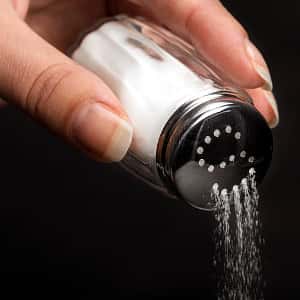
The relationship between salt consumption and cardiovascular mortality just became more complicated and confusing. Articles about the relationship between sodium intake and death from cardiovascular causes published in the New England Journal of Medicine this week present contradictory conclusions.
In one study researchers analyzed data from over 200 surveys of salt intake involving people from 187 countries. Using estimates of sodium consumption and complex mathematical models, the authors concluded that 1.6 million deaths worldwide and 58,000 in the U.S. could be attributed to excess sodium consumption. They recommended public health initiatives to encourage salt restriction in the United States and around the world.
But another study in the same issue of the Journal came to very different conclusions. In the Prospective Urban Rural Epidemiology or PURE study, more than 100,000 subjects in 17 countries had their morning urine tested for both sodium and potassium. Because sodium excretion is an excellent way to tell how much sodium has been consumed, the researchers were able to determine the relationship between salt intake and cardiovascular events. What they found was that fewer than 4% of the people surveyed complied with the CDC guidelines to get sodium levels under 1.5 grams daily.
More interesting, though, was the finding that people who consumed 3 to 6 grams of sodium daily had a lower risk of death and fewer cardiovascular events than people who consumed really high or really low amounts of sodium. Such results seem to contradict the recommendation from both the American Heart Association and the CDC to cut sodium intake to 1.5 grams or less a day. The researchers suggest that promoting diets high in potassium may be a more productive public health approach to lowering blood pressure and reducing deaths than trying to get people to restrict sodium intake.

